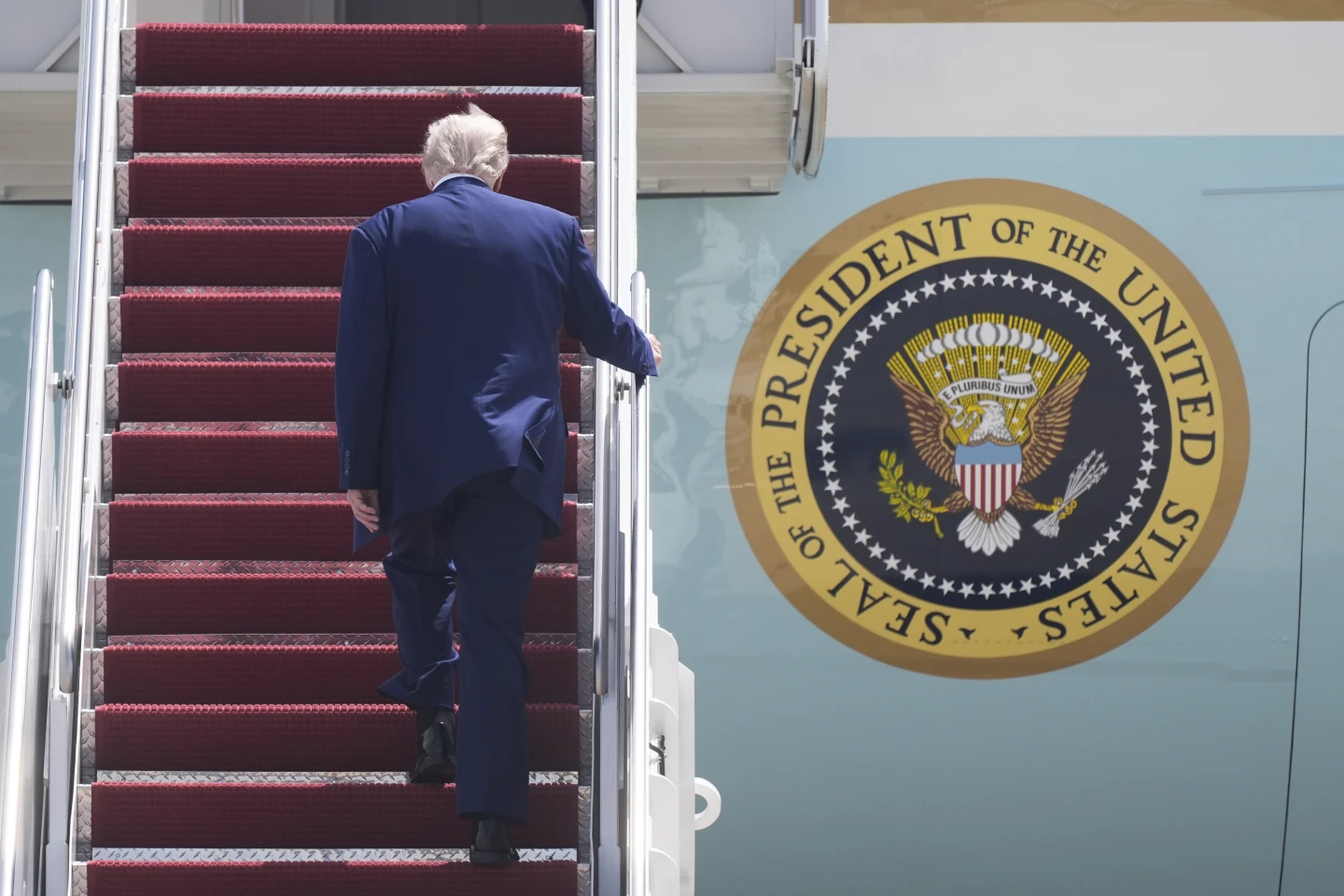President Donald Trump began a three-nation Middle East visit Monday, originally aimed at urging wealthy Gulf nations to invest billions in the US, according to reports from AP. Now, he is confronting multiple global crises that have elevated the stakes of his first major overseas trip of his second term.
“This world is a lot safer today than it was a week ago,” Trump told reporters as he departed for Saudi Arabia, Qatar, and the UAE.
The president was brimming with an overabundance of confidence about some of the world’s most intractable problems, from tensions in South Asia to the future of sanctions in Syria to the war in Ukraine.
Behind closed doors, Arab Gulf leaders will press Trump on key issues: The Gaza war, Iran’s nuclear program, and India-Pakistan tensions.
Trump is also pushing for a meeting between Russian President Vladimir Putin and Ukrainian President Volodymyr Zelenskyy in Istanbul to end the Ukraine war. He is even considering a detour to Turkey.
“I was thinking about flying over. I don’t know where I am going to be on Thursday,” Trump said.
But skepticism remains. “There cannot be talks under fire,” said EU Commission Vice President Kaja Kallas. “It takes two to want peace, it takes only one to want war, and we see that Russia clearly wants war.”
As Trump left for Riyadh, Hamas released the last living American hostage in Gaza, Edan Alexander — a move Trump called a goodwill gesture and a chance to revive stalled peace talks.
Trump saw the release as a possible turning point, but Israeli Prime Minister Benjamin Netanyahu remained firm. His office stated Israel had “not committed to a ceasefire of any kind or the release of terrorists.”
As he prepared to leave Washington, Trump said he’s considering lifting sanctions on Syria — a move favoured by Gulf leaders backing the new government in Damascus.
“We may want to take them off of Syria, because we want to give them a fresh start,” Trump said, noting Turkish President Erdogan supports the idea.
The shift marks a change in tone for Trump, who has been skeptical of Syrian President Ahmed Al-Sharaa. Al-Sharaa came to power after his group, Hayat Tahrir al-Sham (HTS), overthrew Bashar Assad in December.
The US has not formally recognized Al-Sharaa’s government, and Assad-era sanctions remain.
His envoy, Steve Witkoff, held a fourth round of nuclear talks with Iran’s foreign minister in Oman.
The administration has sent mixed signals on whether Iran can produce its own nuclear fuel. Secretary of State Marco Rubio says Iran must import enriched material, while Trump said no final decision has been made.
It also remains unclear if Trump will demand Iran stop backing Hamas, Hezbollah, and the Houthis as part of a deal.
“You can’t have a nuclear weapon,” Trump said. “But I think that they are talking intelligently.”


